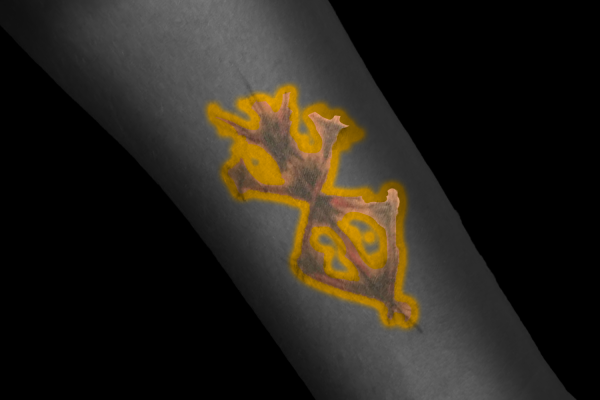Hawthorne Lives
Gaius was an elderly man. He lived alone in his little house, and liked it that way. Today was the last day of October—Halloween—a day he loved as a youth. But now, as a man of eighty years, he decided, in his full wisdom, to become, it would seem, a certain author—shall I say whom?—none, of course, but Nathaniel Hawthorne, an esteemed writer of great works, a wonderful man, and many else besides—!
Gaius could not fathom, as best he did try, why he would now talk in starts, his thoughts, disconnected, as he so did. He feared—, as all men are wont to do—, that his newfound inheritance of one certain Hawthorne, specifically, was to blame. Like a man possessed, Gaius, with a dreadful fear in his heart, ran across the dark house, searching for but a piece—just one piece!—of free, unadulterated, parchment. He clawed at a drawer, pulling from it one solitary page, and placed it upon the table—which, despite being less than five years in age, had the wear of many years, its wood, stained darkly—and procured from his pocket a pen, fashioned from a dull, grey, metal. He removed the old cap, and put the nib, as he so did now, to the page, and the dark ink flowed forth, effortlessly, onto the virgin page. Gaius drew this pen across the page, and, as pens are wont to do, began to fashion letters—and thus certain words—onto this now-stained page, mentioned here, to-day.
No matter how he did try, his pen, stricken by some ailment of the letter, produced nought but a humble comma and em dash, and yielded an abundance of adjectives. His style, nay, his Being, had fundamentally changed to that of great Hawthorne, and he, Gaius, could muster not the strength, neither the courage, to return to his previous, gentler, state. Just then, at that moment, came a short rapping at his door, and Gaius, mind still transfixed on his new self, rose from his chair, and made to answer the knocking at his home’s portal. He grabbed the handle, and, as he did, opened it, to reveal before him, standing there, in the night, a group of but three children, young in age and short in stature, staring into him.
“Sir, hast thou any sweets for us dibbins?” asked the smallest one of him.
“Nay, now begone ye scoundrels from my home! I am suffering from a rare curse! Ye all must go! Save yourselves!”
They, the children, as the frightened are wont to do, ran from his home, into the night, profusely sobbing.
Your donation will support the student journalists of McNeil High School. Your contribution will allow us to purchase equipment and cover our annual website hosting costs.





